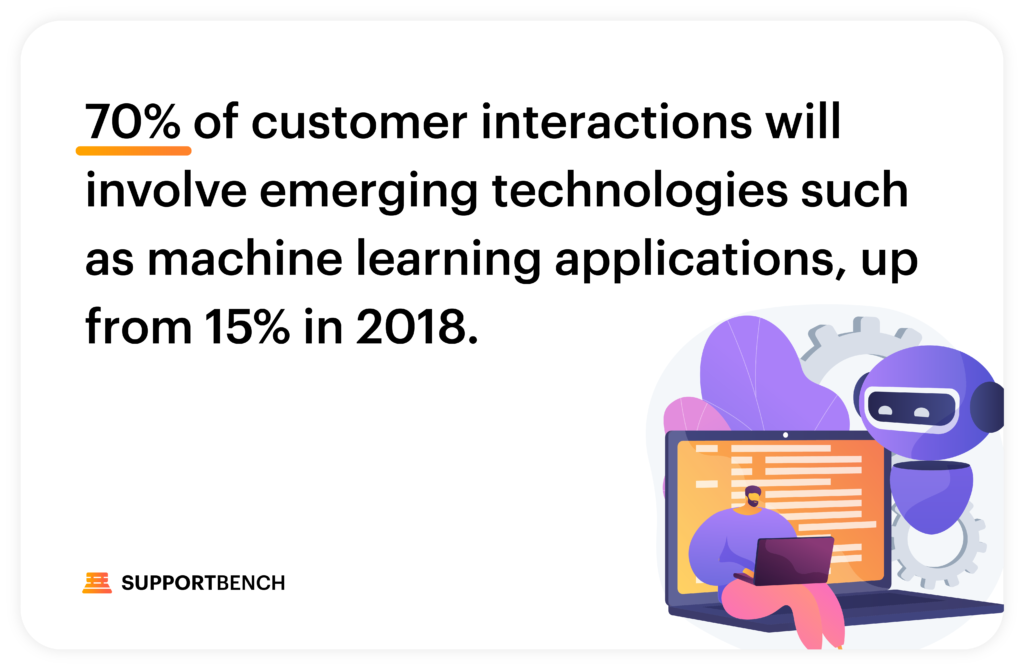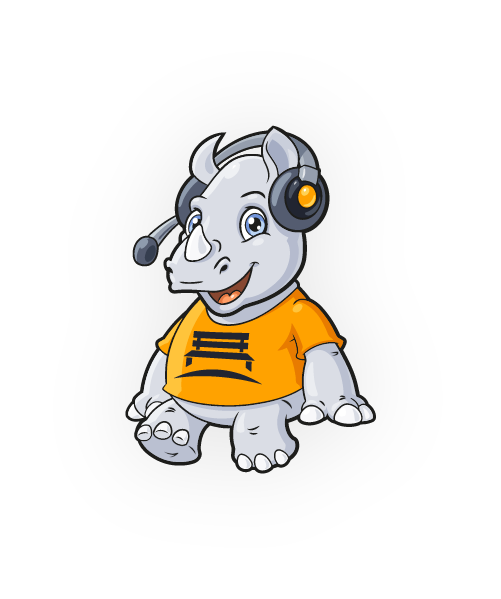Customer support has long been the backbone of customer relations, with human connection at its core. As technology advances, the role of AI in this field is becoming more dominant. But, many enterprises have begun to question the actual value and potential pitfalls. Particularly with regard to companies that are not yet able to use AI at an optimal level. Zendesk, a prominent player in the support industry, has notably shifted towards integrating some AI solutions. However, subpar AI integrations might promise increased efficiency, but they often overlook crucial aspects of the support process, leading to detrimental consequences.
Recent statistics from Gartner indicate that by 2022, 70% of customer interactions will involve emerging technologies such as machine learning applications, up from 15% in 2018. The rapid transition to AI-driven support models might enhance efficiency, but many experts argue that it comes at the expense of the invaluable human touch.
Linda Johnson, Chief Customer Experience Officer at TechNova, remarked, “While AI can process queries faster, it lacks the emotional intelligence that human agents bring to interactions. And in difficult times, customers often seek understanding and empathy more than quick solutions.”
With this in mind, here are SIX actionable trends for support leaders to bolster their teams and stay ahead:

1. Enhancing AI with Emotional Intelligence (EI)
AI can process data swiftly but lacks the nuance of human emotions. However, emerging tech is integrating EI into AI, letting bots discern a customer’s emotional state and respond accordingly. Emotional Recognition Software can interpret a customer’s tone or written word to gauge emotions like frustration or satisfaction. If a customer is detected as upset, the system could prompt a human intervention, ensuring a personalized touch. Using the right tool, you can train your AI with diverse data sets, focusing on different emotions and linguistic nuances, and regularly update them based on feedback. It will be crucial to strike a balance between automated responses and moments requiring human intervention.
2. Proactive Support Through Predictive Analysis
Rather than waiting for a problem to arise, support teams can use AI-driven predictive analysis to foresee potential issues. If a company notices recurring issues every time a software update rolls out, predictive analysis can identify patterns and potential future challenges. With a platform that can more efficiently make use of AI, you can combine AI’s predictive abilities with the insights and experience of human agents, businesses can preemptively address issues. This proactive approach can enhance the customer experience, preventing problems before they surface.
3. Human-AI Collaboration Platforms
Instead of replacing humans, AI can be an ally. Collaborative platforms allow AI and human agents to work in tandem, ensuring a smoother customer journey. An AI chatbot can handle initial queries, and if a complex issue arises, seamlessly transfer to a human agent armed with the chat history and customer details. With the right system, you can encourage a culture where agents view AI as a tool to assist rather than replace. Regular workshops can be conducted to showcase the strengths of both AI and human agents and how they can complement one another.
4. Continuous Training and Feedback Loops
AI’s efficiency hinges on constant learning. Integrating feedback loops allows the system to evolve based on real-world interactions. If an AI chatbot consistently misinterprets a specific query, feedback mechanisms ensure this mistake is rectified in future interactions. It’s vital to set up monthly review sessions where support teams can provide feedback on AI-driven tools. This iterative process ensures that AI systems remain relevant and effective.
5. Personalized AI Interactions
One size doesn’t fit all. AI-driven support can be tailored to provide individualized experiences based on customer behavior and preferences. If a customer frequently interacts with a specific product feature, AI can recognize this pattern and provide customized assistance related to that topic. Only true data analytics tools can provide insights into customer behavior. Use these insights to refine AI systems, ensuring they cater to individual needs.
6. Ethical Considerations and Transparency
With AI’s increased role, ethical concerns arise. It’s imperative to be transparent about how and when AI interacts with customers. Customers might feel deceived if they believe they’re interacting with a human, only to discover it’s a bot. You must ensure that all AI-driven interactions clearly state they’re automated. Moreover, ensure that data privacy and ethical standards are strictly adhered to.
Supportbench, for instance, is pioneering the path by emphasizing a seamless customer support management, a data-driven approach, and an autonomous infrastructure. While AI technologies like ChatGPT are deeply integrated into the product, the importance of the human touch, empathy, and genuine connection hasn’t been forgotten. It’s about striking the right balance.
In the evolving landscape of customer support, the fusion of advanced AI with the irreplaceable human touch is not just the future—it’s the present. By leveraging the strengths of both, businesses can achieve unparalleled levels of efficiency, empathy, and customer satisfaction. And there are profound hidden costs of relying on a system with substandard AI in support such as:
Erosion of Customer Trust
When customers approach support, they expect swift, accurate, and understanding responses. However, an AI module that doesn’t function optimally can lead to misinterpretations, generic replies, or, worse, incorrect information. Over time, such inconsistencies can erode the trust customers place in a brand.
For instance, a client may reach out about a billing discrepancy. A substandard AI module might misinterpret the query and provide unrelated information about product features. Such interactions leave customers feeling unheard and undervalued, pushing them to seek alternative solutions or providers.
Increased Workload for Human Agents
AI in customer support aims to streamline processes, addressing common queries and thereby freeing human agents to handle more complex issues. But, if the AI module frequently errs or provides incomplete solutions, human agents must step in to rectify those mistakes. This not only increases their workload but also means longer wait times for customers, leading to frustration.
Damage to Brand Reputation
In today’s digital age, a single negative customer experience can reverberate loudly across social media platforms and review sites. If clients consistently face issues with an AI-driven support system, it’s only a matter of time before these grievances become public. Such feedback can deter potential customers, leading to lost business opportunities.
Escalated Costs and Reduced ROI
One of the primary drivers for AI adoption is cost-effectiveness. Automated systems, when functioning optimally, can lead to reduced personnel costs and increased efficiency. However, a faulty system might necessitate frequent interventions, patches, and updates, leading to hidden costs. When combined with potential revenue losses due to unsatisfied customers, the promised ROI can quickly diminish.
Lost Opportunities for Valuable Feedback
An effective customer support system does more than just solve problems; it also gleans valuable feedback. Human agents can identify patterns in customer complaints, suggesting areas for product or service improvement. Substandard AI systems, however, can overlook or misinterpret these patterns, leading businesses to miss out on insights that could drive innovation.
Supportbench’s approach offers a contrast, emphasizing not just technological capability but also the need for genuine connection and understanding in customer interactions. By integrating advanced technologies like ChatGPT and still maintaining the essential human touch, they bridge the gap that some companies face when over-relying on AI.
In summary, while AI presents a promising frontier in customer support, it’s crucial to remember that not all AI modules are created equal. The difference between a well-integrated, effective AI system and a subpar one can profoundly impact an organization’s success, customer trust, and overall brand reputation. As businesses continue to navigate the evolving landscape of AI-driven support, the emphasis should always remain on delivering genuine, accurate, and empathetic customer experiences.











